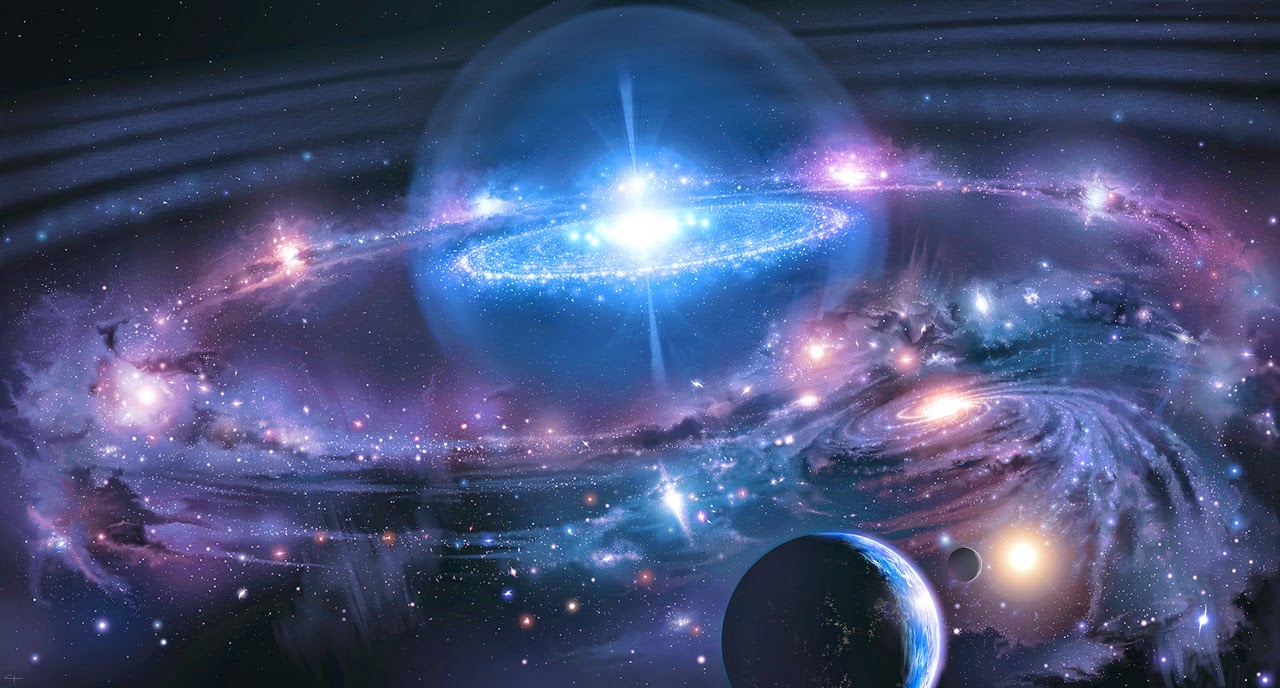Beginning
Submitted by:
Ankit Mahato
A6429713003
Every day we wake up, we see a lot of people smiling,
walking, playing and other things. The ample lives we see sound us are pinnacle
part of this world. The world we actually know. But does it has a beginning or
is it endlessly flowing? What will happen if time will start flowing backwards?
Why we know the past only not the future? Why is this universe created? If
there is a beginning, there must be an end.
It is hard to believe that the life and the surroundings that
we are so used to has a beginning. At the beginning of the universe, the world
we know was quite different. We were talking about the universe 14 billion
years ago. All started with a giant explosion known as Big Bang. Before the
idea of big bang there were many pre conceived notions about the beginning of
universe. St. Augustine accepted a date of 5000 B.C. for the creation of the
universe according to the book of Genesis. It is interesting that this is not
so far from the end of the last Ice age, about 10,000 B.C., which is when
civilization really began. Aristotle and most of the other Greek philosophers,
on the other hand, did not like the idea of a creation because it made too much
of divine intervention. They believed, therefore, that the human race and the
world around it had existed, and would exist forever. But in 1929, Edwin Hubble
made the landmark observation that wherever you look, distant stars are moving
rapidly away from us. In other words, the universe is expanding. This means
that at earlier times objects would have been closer together. In fact, it
seemed that there was a time when they were all at exactly the same place.
Hubble’s observation suggested that there was a time called
the big bang when the universe was infinitesimally small and therefore
infinitely dense. One may say that time had a beginning at the big bang.
Evidence was also provided by the second law of thermodynamics, formulated by
the German physicist Boltzmann. It states that the total amount of disorder in
the universe always increases with time. This is like the argument about human
progress, suggests that the universe can have been going only for a finite
time. Otherwise, it would by now have degenerated into a state of complete
disorder, in which everything would be at the same temperature.
At the big bang itself, the universe had zero size and so
must have been infinitely hot. But as the universe expanded, the temperature of
the radiation would have decreased. One second after the big bang it would have
fallen to about ten thousand million degrees. About one hundred seconds after
the big bang, the temperature would have fallen to one thousand million
degrees, the temperature inside the hottest stars. At this temperature protons
and neutrons would no longer have sufficient energy to escape the attraction of
the strong nuclear force. They would start to combine together to produce the
nuclei of atoms of deuterium, or heavy hydrogen, which contains one proton and
one neutron. Gradually these hydrogen atoms combined to form lithium and
beryllium and other heavier elements.
We can now see that everything that we look around had their
origin directly or indirectly from the big bang. Still there are many questions
waiting to be answered. What was there before the big bang? What agency created
the universe, and what created that agency? Will this universe which appear
expanding endlessly now will sink into a singularity?

No comments:
Post a Comment